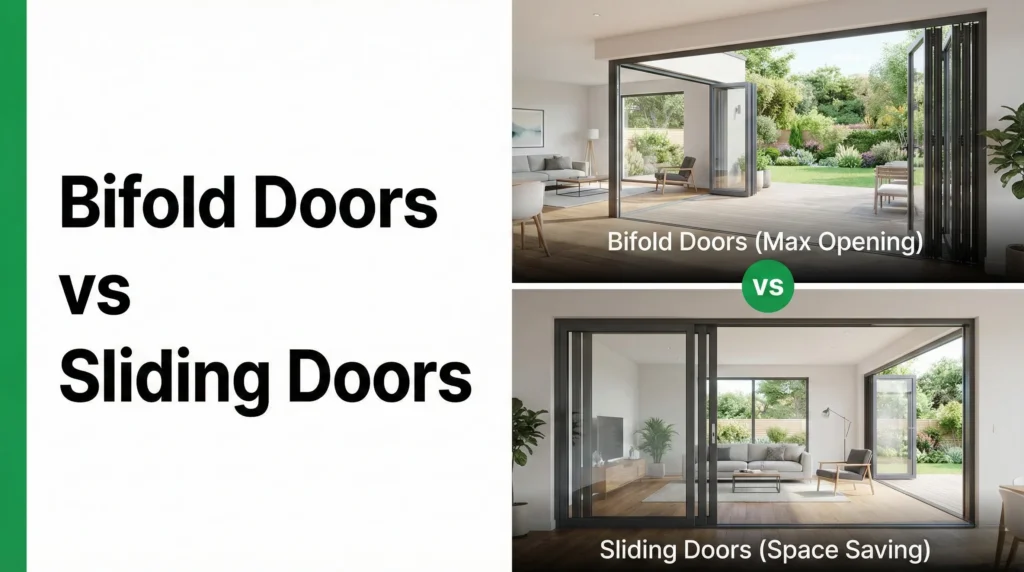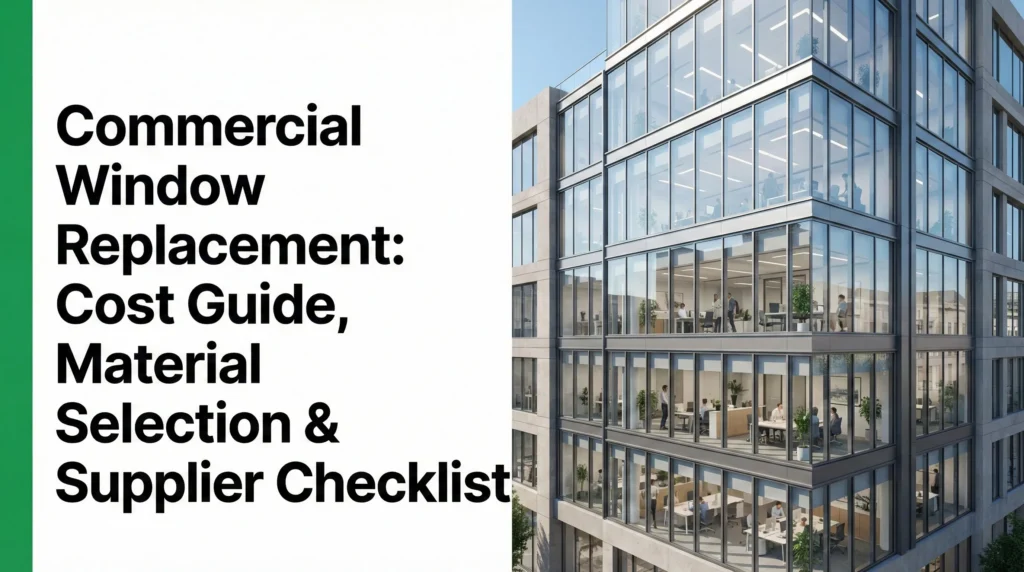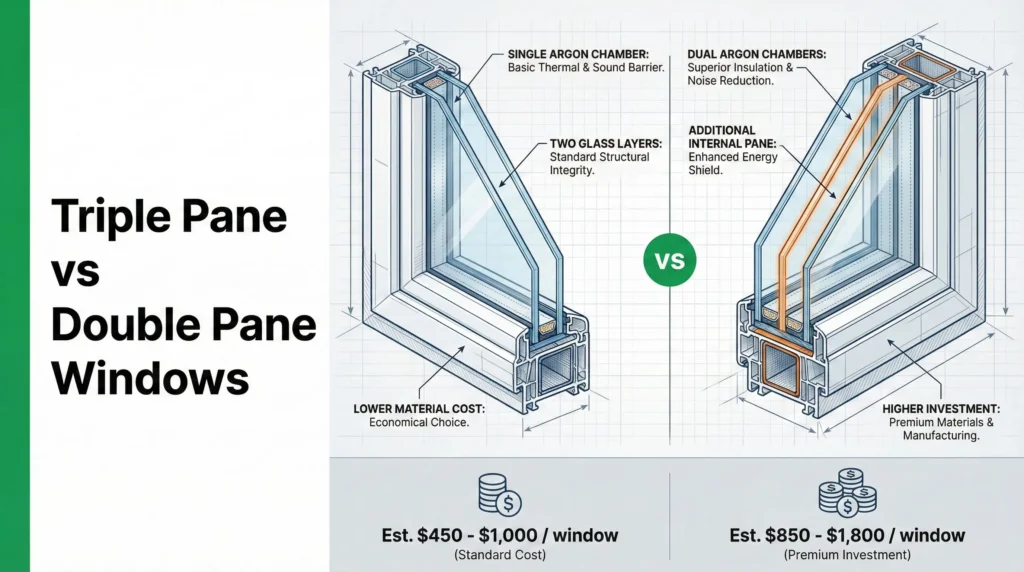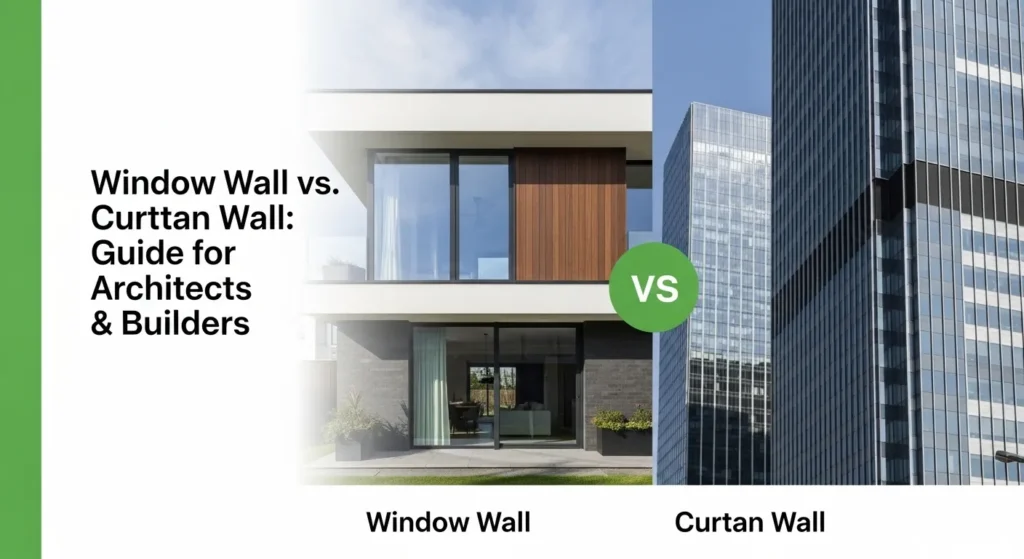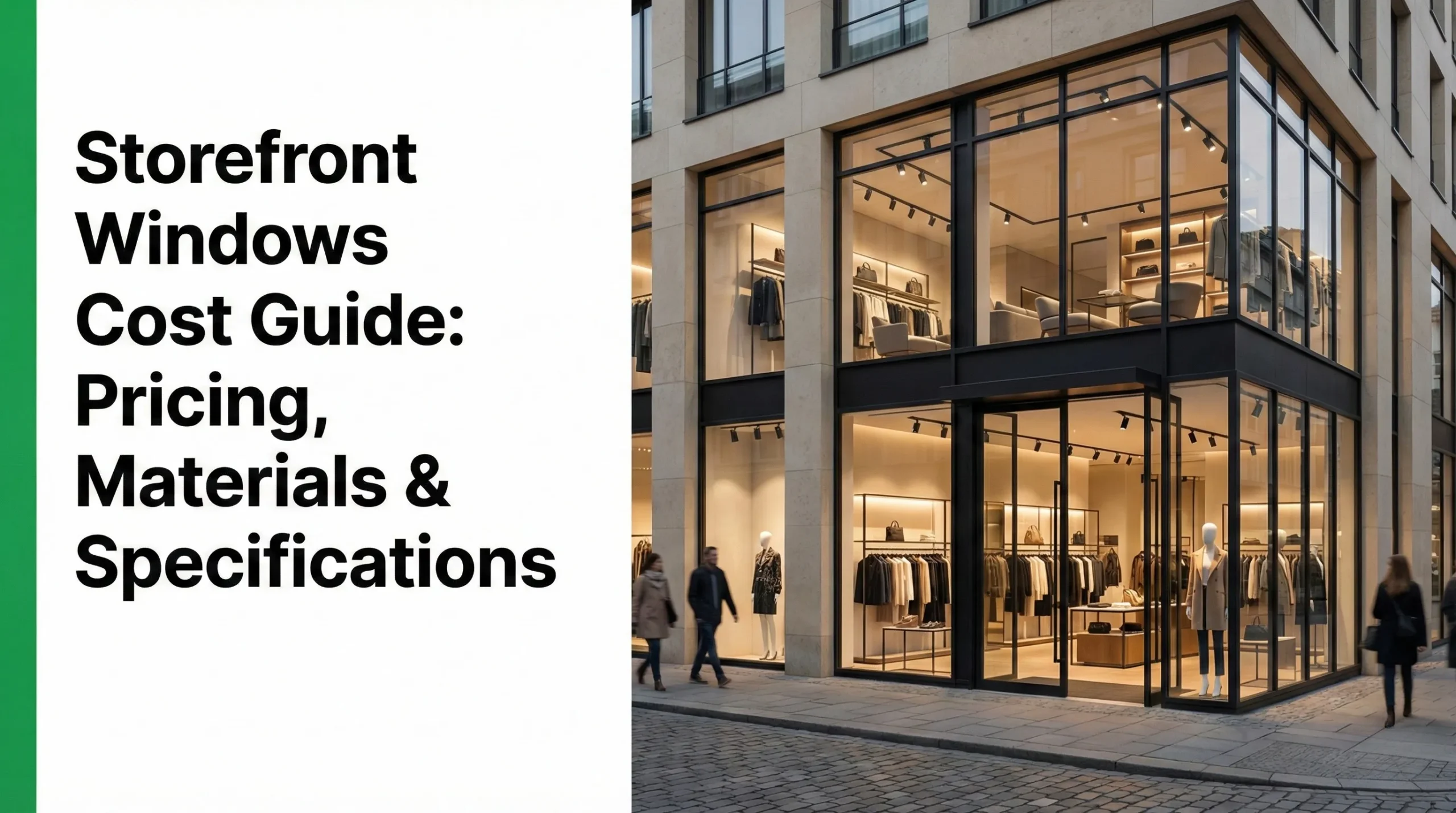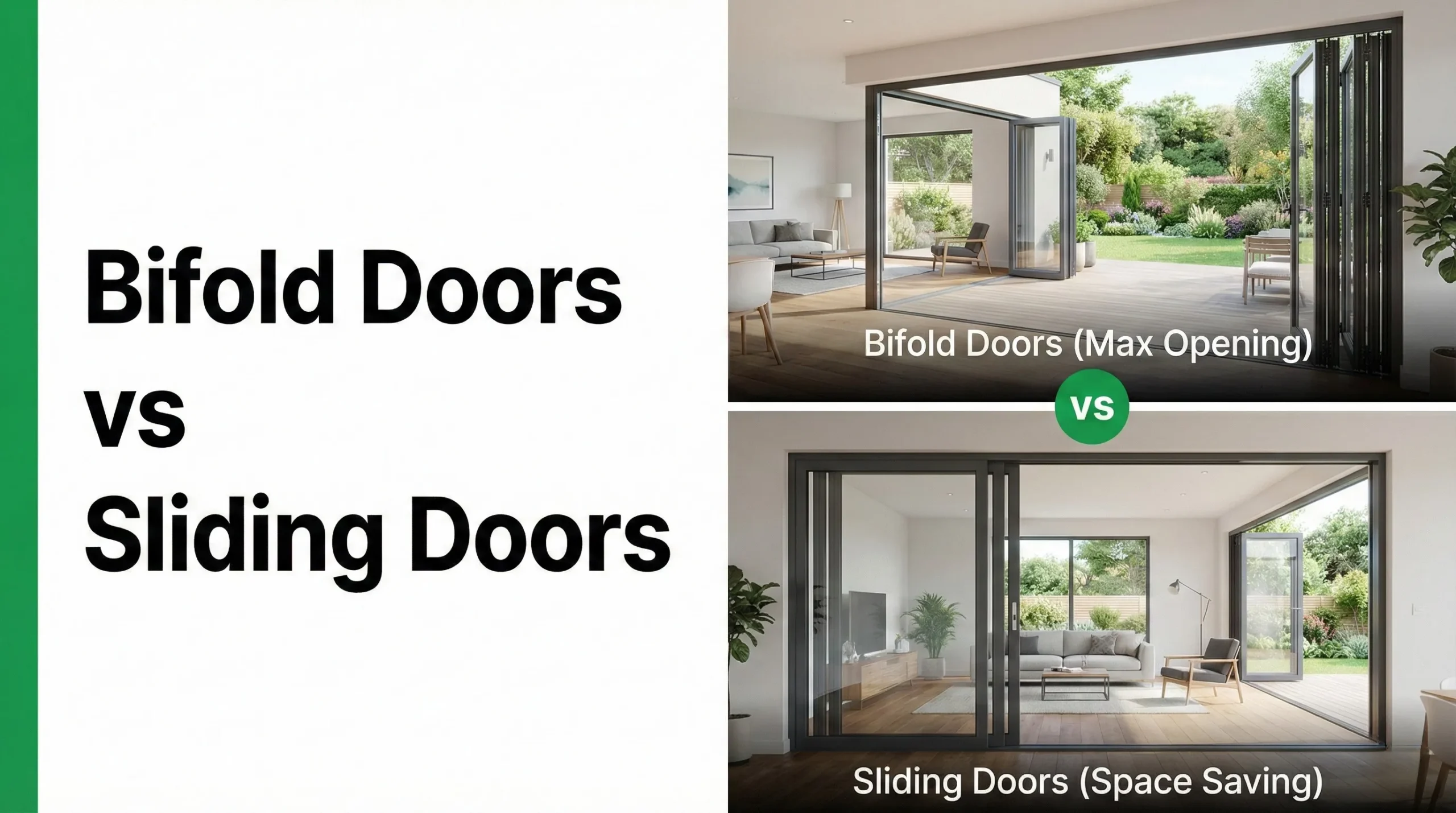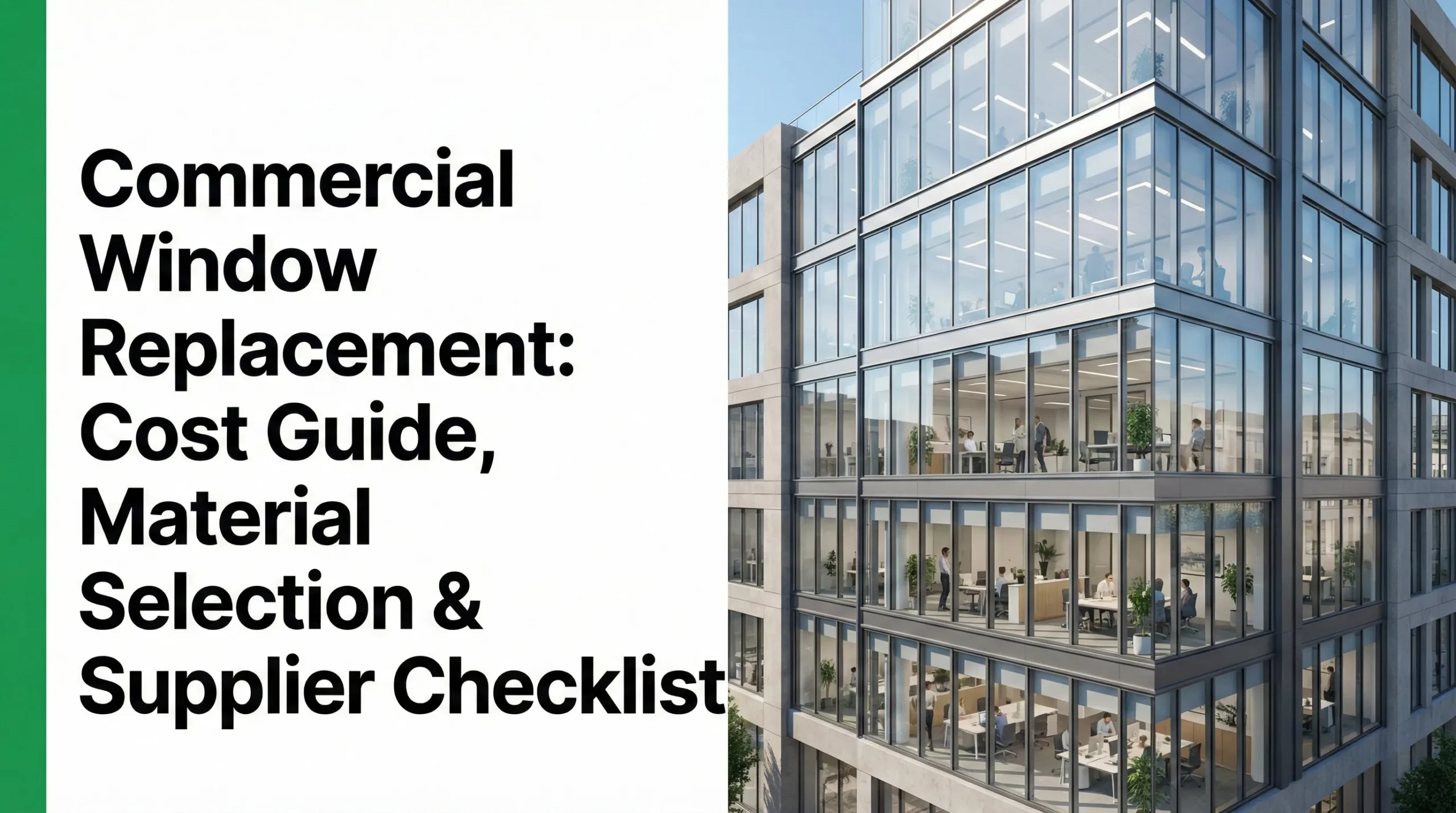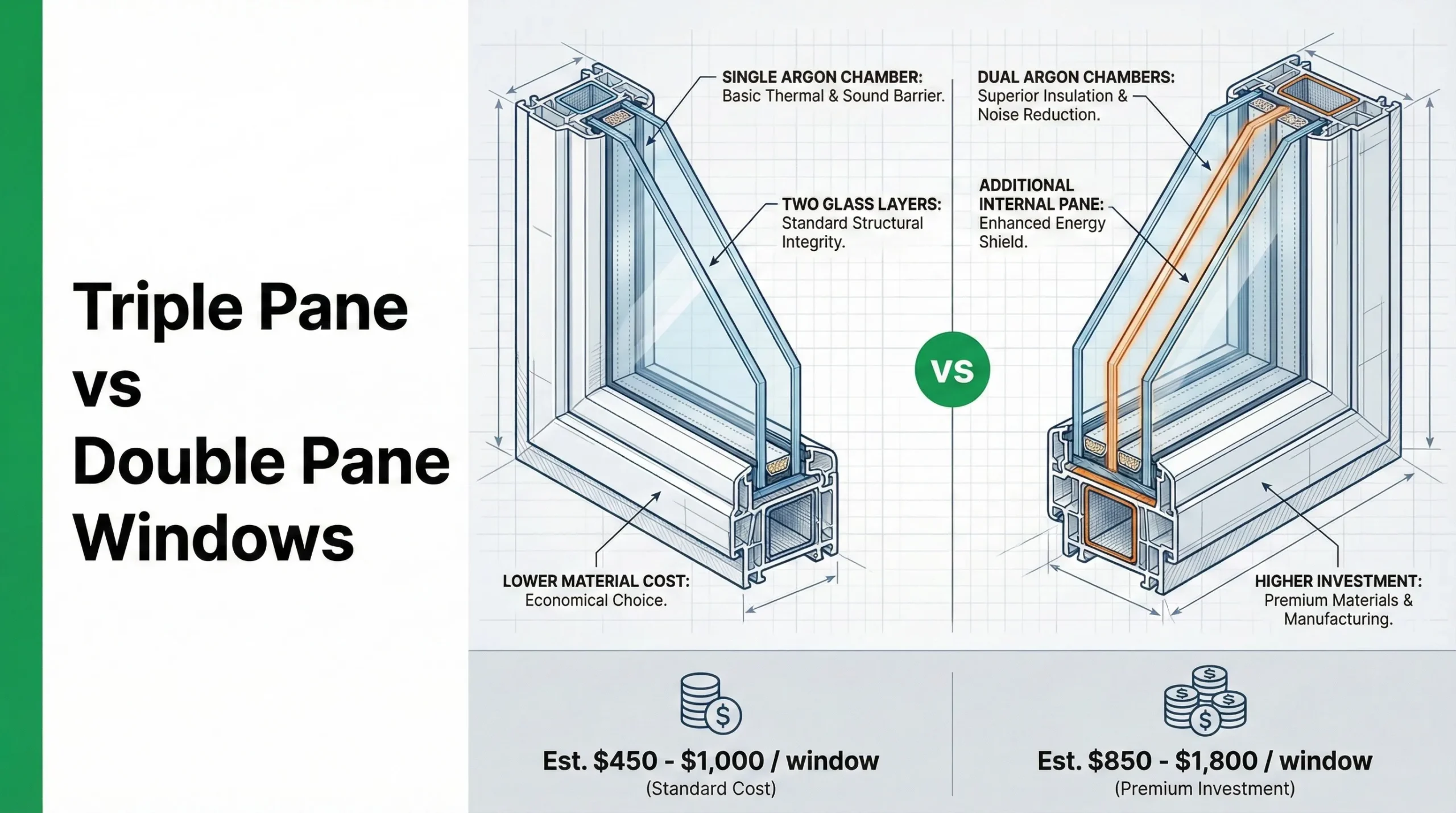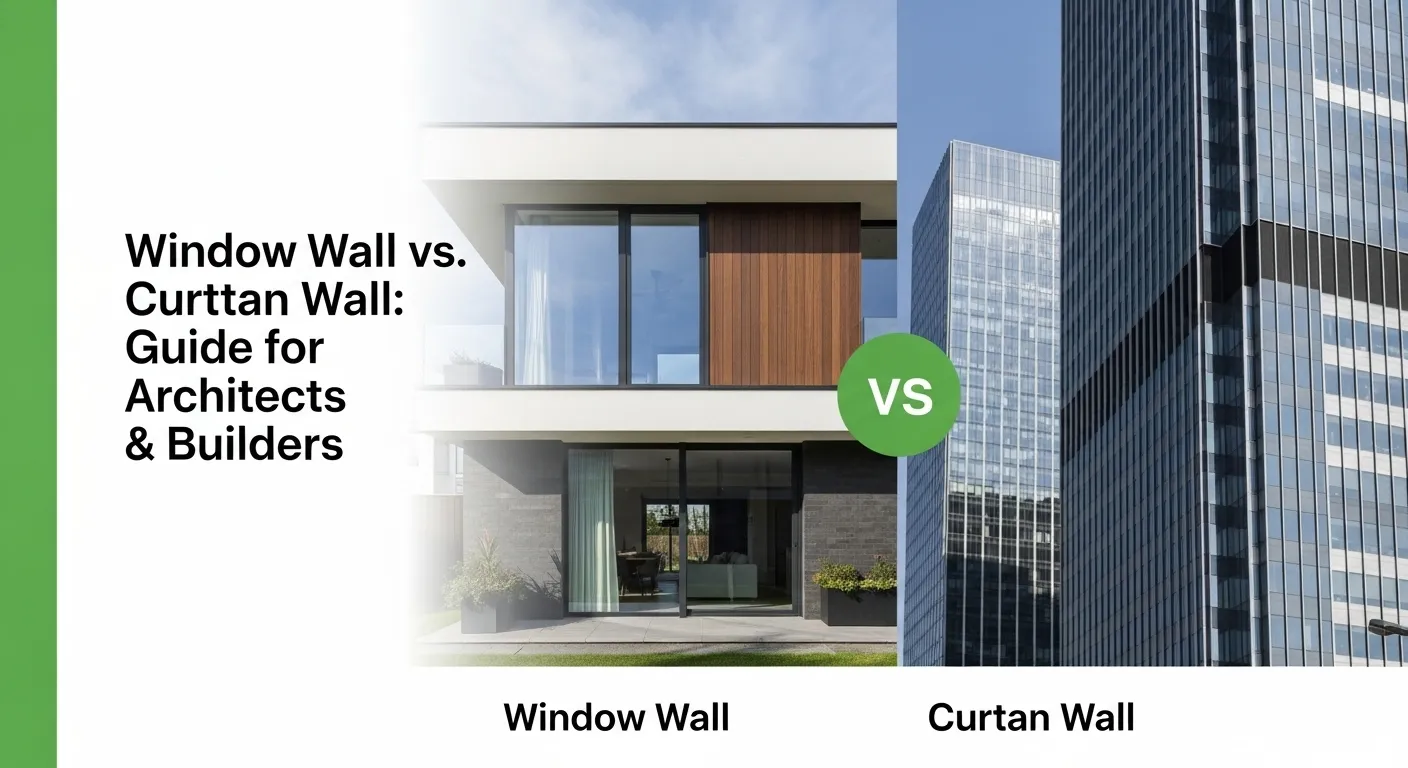Kiezen tussen op maat gemaakte en geprefabriceerde deuren heeft invloed op de uitstraling, veiligheid en waarde van uw eigendom. Deze gids beantwoordt veelgestelde vragen om u te helpen de juiste keuze te maken voor uw project, of u nu renoveert, nieuw bouwt of uw entree vernieuwt.
Belangrijke factoren die we zullen bespreken:
- Esthetiek
- Beveiliging
- Energie-efficiëntie
- Kostenoverwegingen
Hier zijn de meest gestelde vragen (FAQ's) die mensen hebben over Aangepaste deuren versus geprefabriceerde deuren, samen met gedetailleerde antwoorden om u te helpen een weloverwogen beslissing te nemen:
1. Wat zijn de belangrijkste verschillen tussen op maat gemaakte deuren en geprefabriceerde deuren?
- Aangepaste deuren: Deze worden op bestelling gemaakt, speciaal ontworpen om te passen bij uw ruimte en stijlvoorkeuren. U kunt kiezen uit een breed scala aan materialen, afwerkingen, hardware en maten. Ze bieden superieur vakmanschap, unieke ontwerpen en een perfecte pasvorm voor niet-standaard deuropeningen.
- Voorgefabriceerde deuren: Deze worden massaal geproduceerd in standaardmaten en -ontwerpen. Hoewel ze betaalbaarder en gemakkelijker verkrijgbaar zijn, bieden ze beperkte aanpassingsopties en passen ze mogelijk niet perfect in niet-standaard deurkozijnen.
2. Welke optie is duurder?
- Aangepaste deuren: Meestal duurder vanwege de hoogwaardige materialen, het gepersonaliseerde ontwerp en het vakmanschap. De kosten kunnen ook stijgen op basis van de complexiteit van het ontwerp en de gebruikte materialen.
- Voorgefabriceerde deuren: Over het algemeen betaalbaarder omdat ze massaal worden geproduceerd. Echter, duurdere geprefabriceerde deuren van massief hout of glasvezel kunnen nog steeds duur zijn.
3. Hoe verhogen op maat gemaakte deuren de waarde van uw huis?
Aangepaste deuren kan de wederverkoopwaarde van uw huis aanzienlijk verhogen vanwege hun uniekheid, superieure kwaliteit en verbeterde esthetische aantrekkingskracht. Kopers waarderen vaak aangepaste functies die een hoog vakmanschap en duurzaamheid weerspiegelen. Bovendien kunnen aangepaste deuren betere energie-efficiëntie en beveiligingsfuncties bieden, wat de waarde van het onroerend goed verder verhoogt.
4. Zijn op maat gemaakte deuren duurzamer dan geprefabriceerde deuren?
Ja, op maat gemaakte deuren zijn doorgaans duurzamer omdat ze zijn gemaakt van materialen van hogere kwaliteit, zoals massief hout of staal, en ze zijn gebouwd volgens exacte specificaties. Dit resulteert in een langere levensduur in vergelijking met de meeste geprefabriceerde deuren, die mogelijk materialen van lagere kwaliteit gebruiken. Op maat gemaakte deuren kunnen ook worden versterkt voor specifieke doeleinden, zoals beveiliging of weersbestendigheid.
5. Hoe lang duurt het om een op maat gemaakte deur te installeren in vergelijking met een geprefabriceerde deur?
- Aangepaste deuren: De installatie kan langer duren omdat de deur op bestelling wordt gemaakt, wat een langere doorlooptijd met zich meebrengt (enkele weken). Het installatieproces zelf kan ook meer tijd kosten vanwege de noodzaak van een nauwkeurige pasvorm.
- Voorgefabriceerde deuren:Deze kunnen vaak binnen een paar uur of zelfs binnen een dag worden geïnstalleerd, omdat ze in standaardafmetingen worden geleverd en er tijdens de installatie niet zoveel aanpassingen nodig zijn.
6. Kunnen geprefabriceerde deuren op maat gemaakt worden?
Tot op zekere hoogte wel. Geprefabriceerde deuren bieden mogelijk beperkte aanpassingsopties, zoals verschillende afwerkingen of hardwarekeuzes. Deze opties zijn echter veel beperkter vergeleken met op maat gemaakte deuren, die volledige controle over ontwerpelementen zoals grootte, materiaal, afwerking en hardware mogelijk maken.
7. Welke optie biedt een betere energie-efficiëntie?
- Aangepaste deuren: Bieden over het algemeen een betere energie-efficiëntie omdat ze zijn gebouwd om perfect in uw deuropening te passen zonder openingen of tocht. U kunt ook materialen kiezen die superieure isolatie-eigenschappen bieden.
- Voorgefabriceerde deuren:Hoewel sommige geprefabriceerde deuren (met name die van glasvezel of geïsoleerd staal) een goede energie-efficiëntie kunnen bieden, passen ze mogelijk niet zo goed als op maat gemaakte deuren, tenzij uw deuropening een standaardmaat heeft.
8. Zijn op maat gemaakte deuren beter voor de veiligheid?
Ja, op maat gemaakte deuren kunnen worden ontworpen met verbeterde beveiligingsfuncties zoals versterkte frames, sloten met hoge beveiliging en dikkere materialen zoals staal of hardhout. U hebt volledige controle over het beveiligingsniveau dat u wilt opnemen in het ontwerp van een op maat gemaakte deur. Geprefabriceerde deuren bieden ook beveiligingsfuncties, maar bieden mogelijk niet hetzelfde niveau van maatwerk voor specifieke behoeften.
9. Welke materialen worden doorgaans gebruikt voor op maat gemaakte deuren en voor geprefabriceerde deuren?
- Aangepaste deuren: Veelvoorkomende materialen zijn massief hardhout (bijv. eiken of mahonie), staal, glasvezel, smeedijzer of een combinatie van deze materialen, afhankelijk van uw behoeften (bijv. veiligheid of esthetiek).
- Voorgefabriceerde deuren: Meestal gemaakt van houtcomposieten, glasvezel of holle kernmaterialen voor gebruik binnenshuis; massief hout of staal wordt gebruikt voor duurdere exterieurmodellen.
10. Welke optie is beter voor niet-standaard deurmaten?
Aangepaste deuren zijn ideaal voor niet-standaard deurmaten omdat ze zo zijn gebouwd dat ze perfect passen bij elke afmeting. Voorgefabriceerde deuren zijn alleen verkrijgbaar in standaardmaten en vereisen mogelijk extra aanpassingen als uw deuropening niet aan deze afmetingen voldoet.
11. Wat zijn de voor- en nadelen van voorgehangen deuren versus plaatdeuren?
- Voorgehangen deuren: Deze worden geleverd met een frame, scharnieren en voorgeboorde gaten voor hardware, waardoor ze gemakkelijker te installeren zijn, vooral bij nieuwbouw of bij het vervangen van zowel de deur als het frame. Ze kunnen echter omvangrijker en duurder zijn dan plaatdeuren.
- Voordelen: Eenvoudigere installatie, wordt geleverd met een frame, voorgeboord voor bevestigingsmateriaal.
- Nadelen: Duurder, zwaarder en moeilijker te vervoeren.
- Plaatdeuren: Dit is alleen de deur zelf zonder frame of hardware. Ze zijn betaalbaarder, maar vereisen meer werk tijdens de installatie (bijv. het zagen van gaten voor scharnieren en het plaatsen in een bestaand frame).
- Voordelen: Goedkoper, meer ontwerpflexibiliteit (bijv. gebruik van antieke of aangepaste ontwerpen).
- Nadelen: Vereist meer timmerwerk en nauwkeurige montage.
12. Hoe lang duurt het voordat ik een op maat gemaakte deur ontvang nadat ik deze heb besteld?
De doorlooptijd voor aangepaste deuren kan variëren, afhankelijk van de fabrikant en de complexiteit van het ontwerp. Normaal gesproken kan het 5 weken tot 12-16 weken duren voordat aangepaste deuren worden vervaardigd en geleverd. Deze tijdlijn omvat productie, afwerking en verzending.
13. Kan ik privacyglas in zowel op maat gemaakte als geprefabriceerde deuren krijgen?
Ja, zowel op maat gemaakte als geprefabriceerde deuren bieden privacy glasopties. Op maat gemaakte deuren bieden echter meer flexibiliteit bij het kiezen van unieke glasontwerpen of specifieke privacyniveaus. Geprefabriceerde deuren hebben mogelijk minder glasopties, maar bieden nog steeds standaard privacy glasfuncties.
14. Vereisen op maat gemaakte deuren meer onderhoud dan geprefabriceerde deuren?
Aangepaste houten deuren vereisen over het algemeen meer onderhoud in de loop van de tijd vergeleken met geprefabriceerde glasvezel- of stalen deuren. Houten deuren moeten bijvoorbeeld periodiek worden afgewerkt of gelakt om ze te beschermen tegen weersinvloeden. Geprefabriceerde deuren van materialen zoals glasvezel of staal zijn vaak beter bestand tegen verwering en vereisen minder onderhoud.
15. Kan ik alleen de deur vervangen zonder het kozijn te vervangen?
Ja, als uw bestaande deurkozijn in goede staat is, kunt u alleen de deur (een plaatdeur) vervangen zonder het hele kozijn te vervangen. Dit is gebruikelijk bij zowel op maat gemaakte als geprefabriceerde plaatdeuren. Als het kozijn echter beschadigd of kromgetrokken is, is het vaak beter om zowel de deur als het kozijn te vervangen door een voorgehangen eenheid.
16. Zijn er verschillen in energie-efficiëntie tussen op maat gemaakte deuren en geprefabriceerde deuren?
Zowel op maat gemaakte als geprefabriceerde deuren kunnen energiezuinig zijn als ze met de juiste materialen en isolatie worden gebouwd. Op maat gemaakte deuren kunnen worden aangepast om perfect in uw deuropening te passen, waardoor tocht wordt geminimaliseerd en de energie-efficiëntie wordt verbeterd. Geprefabriceerde deuren van materialen zoals glasvezel of geïsoleerd staal bieden ook een goede energie-efficiëntie, maar passen mogelijk niet zo goed in niet-standaard openingen.
17. Waar moet ik op letten bij het kiezen van een materiaal voor mijn voordeur?
Houd bij het kiezen van een voordeurmateriaal rekening met:
- Beveiliging:Staal biedt superieure veiligheid.
- Duurzaamheid: Glasvezel is bestand tegen deuken en roest.
- Esthetiek:Hout heeft een klassieke uitstraling, maar vereist meer onderhoud.
- Energie-efficiëntie: Kies voor materialen met een ENERGY STAR-label, zoals geïsoleerd glasvezel of staal. Deze helpen de verwarmings-/koelingskosten te verlagen.
18. Kan ik aan beide kanten van een op maat gemaakte deur een andere afwerking krijgen?
Ja! Een van de voordelen van op maat gemaakte deuren is dat u verschillende afwerkingen kunt kiezen voor elke kant van de deur (bijvoorbeeld een kleurenschema voor de buitenkant aan de ene kant en een kleurschema voor het interieur aan de andere kant). Dit niveau van maatwerk is meestal niet beschikbaar bij geprefabriceerde deuren.
19. Zijn op maat gemaakte glazen douchedeuren het waard in vergelijking met geprefabriceerde deuren?
Specifiek voor glazen douchedeuren:
- Aangepaste douchedeuren: Bied op maat gemaakte ontwerpen die perfect passen in unieke ruimtes (bijv. niet-standaardmaten of -configuraties). Ze bieden een hoogwaardige esthetiek, maar zijn duurder.
- Geprefabriceerde douchedeuren: Betaalbaarder en verkrijgbaar in standaardmaten/-ontwerpen, maar past mogelijk niet perfect in elke badkamerindeling.
20. Welke invloed heeft het vestigen in oudere huizen op de installatie van deuren?
In oudere huizen kan verzakking ervoor zorgen dat deurkozijnen na verloop van tijd kromtrekken of verschuiven, waardoor het lastig is om standaardformaat geprefabriceerde deuren te installeren zonder aanpassingen. In deze gevallen zijn vaak op maat gemaakte deuren nodig, omdat ze precies op onregelmatige kozijnen kunnen worden gebouwd.
21. Wat is het verschil tussen een voorgehangen deur en een plaatdeur?
- Voorgehangen deur: Een voorgehangen deur wordt geleverd met het frame, scharnieren en soms zelfs voorgeboorde gaten voor hardware, waardoor het makkelijker te installeren is. Het is ideaal voor nieuwbouw of bij het vervangen van zowel de deur als het frame.
- Voordelen: Eenvoudige installatie, wordt geleverd als een complete unit.
- Nadelen: Duurder en zwaarder om te transporteren.
- Plaatdeur: Een slabdeur is alleen de deur zelf zonder frame of hardware. Het vereist meer werk tijdens de installatie, zoals het zagen van gaten voor scharnieren en het passen in een bestaand frame.
- Voordelen: Betaalbaardere, flexibele ontwerpopties.
- Nadelen: Vereist meer timmermansvaardigheden voor de installatie.
22. Kan ik zelf deuren op maat installeren of heb ik een professional nodig?
Hoewel sommige huiseigenaren zelf de installatie proberen, is het over het algemeen aan te raden om een professional in te huren voor op maat gemaakte deuren. Op maat gemaakte deuren vereisen vaak nauwkeurige metingen en aanpassingen om perfect te passen, vooral als uw huis in de loop van de tijd is gaan staan of niet-standaard openingen heeft. Een professional kan zorgen voor een correcte installatie, wat cruciaal is voor energie-efficiëntie, veiligheid en levensduur.
23. Zit er garantie op op maat gemaakte deuren?
Ja, de meeste op maat gemaakte deuren worden geleverd met garanties, maar de details kunnen variëren afhankelijk van de fabrikant en de gebruikte materialen. Bijvoorbeeld:
- Op maat gemaakte houten deuren kan vanwege onderhoudsvereisten met een kortere garantieperiode komen (bijv. 5-10 jaar).
- Op maat gemaakte stalen of glasvezeldeuren hebben vaak een langere garantie (15-20 jaar of meer).
Informeer altijd bij uw aannemer of fabrikant wat er onder de garantie valt (bijvoorbeeld kromtrekken, hardwareproblemen).
24. Kan ik aan beide kanten van de deur een afwerking op maat krijgen?
Ja, een van de belangrijkste voordelen van op maat gemaakte deuren is dat u verschillende afwerkingen voor elke kant van de deur kunt kiezen. Dit is vooral handig als u wilt dat de buitenkant bij de gevel van uw huis past, maar een andere afwerking aan de binnenkant wilt om uw interieur aan te vullen.
25. Wat zijn de voordelen van het kiezen van op maat gemaakte houten deuren?
Op maat gemaakte houten deuren bieden verschillende voordelen:
- Esthetische aantrekkingskracht:Hout heeft een tijdloze uitstraling die u kunt personaliseren met diverse beitsen, afwerkingen, houtsnijwerk of glasinzetstukken.
- Duurzaamheid:Houten deuren van hoge kwaliteit kunnen tientallen jaren meegaan als ze goed worden onderhouden.
- Aanpassing: U kunt kiezen uit verschillende stijlen (bijv. rustiek, modern) en houtsoorten (bijv. eiken, mahonie).
Ze vergen echter wel meer onderhoud dan deuren van glasvezel of staal, omdat ze gevoelig zijn voor weersinvloeden.
26. Zijn er specifieke bouwvoorschriften waar ik rekening mee moet houden bij het installeren van op maat gemaakte deuren?
Ja, afhankelijk van waar u woont, kunnen er bouwvoorschriften zijn die bepaalde vereisten voor op maat gemaakte deuren voorschrijven:
- Brandclassificaties: Sommige buitendeuren moeten voldoen aan brandveiligheidsnormen.
- ADA-naleving:Als u deuren in commerciële ruimtes of woningen installeert voor toegankelijkheidsdoeleinden, moeten deze voldoen aan de ADA-richtlijnen (bijv. minimale vrije breedte).
- Stormbeoordelingen:In gebieden waar orkanen voorkomen, moeten buitendeuren mogelijk voldoen aan specifieke normen voor wind- en stootbestendigheid.
27. Hoe zorg ik ervoor dat mijn op maat gemaakte deur goed past?
Een goede pasvorm is essentieel voor zowel energie-efficiëntie als veiligheid. Bij het bestellen van een deur op maat:
- Zorg ervoor dat er meerdere metingen van de deuropening worden uitgevoerd (zowel verticaal als horizontaal) om rekening te houden met eventuele onregelmatigheden die door verzakking zijn veroorzaakt.
- Werk samen met een professional die op verschillende punten in de opening metingen uitvoert om een exacte pasvorm te garanderen.
28. Bieden geprefabriceerde deuren goede veiligheidsvoorzieningen?
Ja, veel geprefabriceerde deuren zijn voorzien van stevige beveiligingsfuncties zoals versterkte frames en geavanceerde vergrendelingsmechanismen. Als u echter specifieke beveiligingsbehoeften hebt (bijv. versterkt staal), bieden aangepaste deuren u meer flexibiliteit bij het kiezen van extra beveiligingsfuncties zoals meerpuntssloten of dikkere materialen.
29. Welke materialen worden vaak gebruikt voor op maat gemaakte toegangsdeuren?
Veelvoorkomende materialen die voor op maat gemaakte toegangsdeuren worden gebruikt, zijn:
- Hout: Biedt een klassieke uitstraling, maar vereist meer onderhoud.
- Staal: Biedt uitstekende veiligheid en duurzaamheid.
- Glasvezel: Weinig onderhoud en goede isolatie-eigenschappen.
Elk materiaal heeft zijn voor- en nadelen, afhankelijk van uw prioriteiten (bijvoorbeeld esthetiek versus duurzaamheid).
30. Hoe kies ik tussen glasvezel en hout voor mijn op maat gemaakte deur?
Bij de keuze tussen glasvezel en hout:
- Kiezen glasvezel als u op zoek bent naar weinig onderhoud, duurzaamheid bij extreme weersomstandigheden en een goede energie-efficiëntie.
- Kiezen hout als u de voorkeur geeft aan een natuurlijke uitstraling met rijke texturen, maar bereid bent tijd te investeren in het onderhoud ervan (bijvoorbeeld door het elke paar jaar opnieuw af te werken).
Samengevat:
- Kiezen op maat gemaakte deuren als u prioriteit geeft aan personalisatie, superieure kwaliteit, duurzaamheid en een uniek ontwerp.
- Kies voor geprefabriceerde deuren als u een snellere installatie tegen lagere kosten met standaardafmetingen nodig hebt.
Beide opties hebben hun voor- en nadelen, afhankelijk van uw budget, tijdschema en specifieke behoeften!

